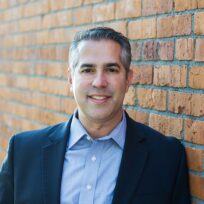How Medical Professionals Can Benefit From a Fee-Only Fiduciary Advisor
Not all financial advisors are fiduciaries, and it’s important to know the difference before entrusting your wealth to an advisor or firm
This article is the third in a four-part series exploring the unique financial planning needs of medical professionals. We are publishing one article each week through November 2.
A fiduciary is a person or organization that acts on behalf of a client to manage assets. In doing so, the fiduciary has a legal duty to provide advice only in the best interest of their client. The relationship requires a great deal of trust and a strong ethical and moral compass from both parties.
People who have a fiduciary responsibility to their client or beneficiary include lawyers, legal guardians, and financial advisors. In terms of finance, a responsible fiduciary discloses any conflicts of interest, stays up-to-date on all aspects of financial planning, and is compensated transparently.
In a sense, doctors have a fiduciary duty to their patients—all medical professionals must act in the best interest of their patient, doing no harm and acting with “special obligations to all fellow human beings.”
The Importance of Fiduciary Financial Planning
Successful financial planning for medical professionals hinges on a solid fiduciary-client relationship, and doctors should look for a financial advisor who is also a full-time, fee-only fiduciary.
A strong relationship between a doctor and their financial advisor is crucial, especially because professionals in this field are not only high-income and high-net-worth individuals but also high-debt, high-malpractice premiums, and high-tax bracket individuals.
Throughout their career, doctors will likely be entrusting significant sums of capital over time to their financial advisor. Anything less than fiduciary financial advice can cost a doctor substantial fees, missed planning opportunities, and potentially years of retirement savings.
Abuse of the Term “Fiduciary”
Not all financial professionals are required to be fiduciaries. For example, broker-dealers do not need to operate with a fiduciary responsibility but instead adhere to a “suitability” standard.
The suitability standard comes with a lower legal bar, leaving broker-dealers free to serve their firm’s interests, not those of their clients. Compensation structures are rarely straightforward, exposing clients to hidden fees down the road. For broker-dealers, as long as a goal is achieved, the details of how that goal is achieved are immaterial. Clients deserve better than that.
As with any professional relationship, there also exists a category of financial professionals and firms that will abuse the term “fiduciary” to earn money off your assets. Such professionals sometimes brand themselves as “part-time” fiduciary financial advisors, which means they can take advantage of their dually-registered status and give advice either in your best interest or in theirs.
Those who abuse the “fiduciary” label may try to make money off your assets by buying or selling stocks to earn a commission, making unauthorized trades, or merely acting with negligence. Perhaps they use outdated information to guide their investment decisions, or maybe they revise your overall financial strategy without your consent.
How to Find the Right Partner
With a high income, it can be easy to lose track of how much of your cash flow is being spent on commission from stock transactions and extraneous fees. A busy life and career can also make it challenging to catch poor financial choices or unauthorized tweaks in strategy.
Before selecting a financial advisor, medical professionals can take a handful of steps to make sure that their advisor is a full-time fiduciary and is genuinely working in the interest of growing their client’s wealth—not their own.
During your initial meeting with a prospective financial advisor, be sure to be fully transparent about your financial goals and the type of professional relationship you hope to have. Suppose you feel as though someone is rushing through important topics or circumventing questions about legal responsibilities or fees. That could be a sign that they have no formal obligation to serve your best interest.
Consider asking additional questions about how they earn money, their certifications and licenses (and if they can provide proof of those qualifications in writing), and their decision-making process when it comes to altering investment strategies. Make sure to pay attention to how they communicate and how receptive they are to your questions and priorities.
Brighton Jones Personal CFO Service
At Brighton Jones, medical professionals have the option to partner with a Personal CFO advisor. Our team develops a deeper understanding of our clients’ lives and goals so we can provide sound advice that spans their entire financial picture—just as a chief financial officer would for a company.
Delivering on that promise requires access to a broad range of in-house professionals who focus on areas beyond investing and financial planning. That’s why our team includes credentialed experts in taxes, retirement, estate planning, philanthropy, real estate, and more.
And from day one, Brighton Jones has provided the objective, fee-only advice clients deserve. As fiduciaries, we operate with a legal obligation to always put your interests first. But it’s more than a law to us—it’s the only way we’ve ever operated. Fiduciary responsibility is at the core of who we are as a firm.
The fourth and final article in our series will introduce you to services we offer, including strategic philanthropy, real estate, private equity, that enhance financial wellbeing beyond the numbers.
Financial Planning for Medical Professionals






